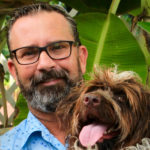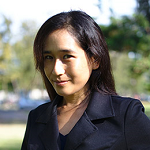Session Description
Hawai‘i has a vast, rich history and culture that many visitors or even malahini (newcomers) may not be aware of. Some overlooked aspects of Hawai‘i that our instructional design will address are indigenous Hawaiian place-names within the context of colonization and the use of Pidgin in a local cultural context. Attendees to our presentation will learn about the development of this design, the objectives and instructional strategy of the course, and receive a taste of what participating visitors would experience at Da Pidgin Plaza - our immersive 3D virtual world on OpenSim. E komo mai!
Presenter(s)
 Rebecca Carino-Agustin
Rebecca Carino-Agustin
LTEC, University of Hawaii at Manoa
Rebecca Carino-Agustin is doctoral student in the Learning Design and Technology (LTEC) program at the University of Hawai'i at Manoa. She also currently serves as a College Success Advisor at the University of Hawai‘i-West O’ahu. Her experience in higher education for the past four years have been dedicated towards supporting and serving students geared towards supporting at-risk students. Her research interests revolve around online informal learning and the use of technology for and by marginalized populations.
 Patrick Agullana
Patrick Agullana
LTEC, University of Hawaii at Manoa
Patrick is currently employed for the International Programs of Outreach College at UH Manoa as an Interchange coordinator. His position at Outreach gives international students the opportunity to interact with UH students through communicative tasks and conversational topics.
With a major in English and a masters in SLS, Patrick received his graduate certificate for online learning and teaching (COLT) from LTEC and he is currently a first year PhD student in LTEC as well.
In his down time, Patrick enjoys watching streaming shows and going to the beach with his family while patiently waiting for the opportunity to sing karaoke in public again.

 Johnny Zhou
Johnny Zhou Marc Antosch
Marc Antosch Kalei Carvalho
Kalei Carvalho Kelly Asato
Kelly Asato Michele Mahi
Michele Mahi Candace Tabuchi
Candace Tabuchi Allyson Ota
Allyson Ota Chelby Onaga
Chelby Onaga Kimberly Iwao
Kimberly Iwao Shauna Sibonga
Shauna Sibonga Suzanne Brown-McBride
Suzanne Brown-McBride Duane Esty
Duane Esty